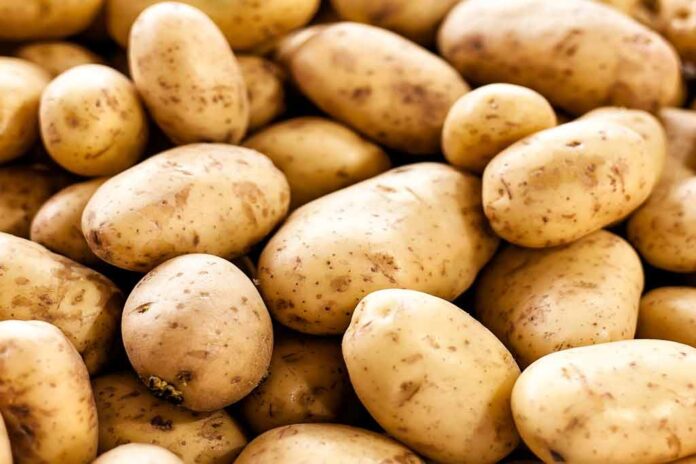A high-level discussion aimed at formulating a systematic programme to address the challenges faced by local potato farmers was held this morning (18) at the Presidential Secretariat, the President’s Media Division (PMD) announced.
The meeting was chaired by Minister of Agriculture, Livestock, Lands and Irrigation K. D. Lal Kantha and Minister of Trade, Commerce and Food Security Wasantha Samarasinghe, with the participation of potato farmers from major growing regions.
Speaking at the discussion, Minister Lal Kantha said the Food Security Committee has decided to prioritise farmer concerns when developing solutions, while ensuring that proposed measures do not adversely affect consumers. He stressed that the Government, the Department of Agriculture and farmers must act collectively rather than operating as separate entities.
Farmers highlighted that the cost of potato cultivation has risen sharply, with seed purchases alone accounting for around 40% of total production costs. They cited issues such as irregular fertiliser application, poor-quality inputs, low yields and the shortage of high-grade seed potatoes as key contributors to escalating costs. Farmers also noted that no previous administration had engaged them in such discussions and expressed hope that the current government would deliver tangible solutions.
Responding to the concerns raised, Minister Wasantha Samarasinghe said the Government is considering establishing a mechanism for the purchase of potatoes through Sathosa, at prices ranging from Rs. 200 to Rs. 300 per kilogramme, while also reviewing the possibility of increasing taxes on imported potatoes.
Minister Lal Kantha further stated that the Government will look into providing direct support to farmers. Plans will be prepared in collaboration with farmers and the Department of Agriculture to produce high-quality fertiliser, agro-inputs, and superior-grade seed potatoes in order to reduce production costs. He added that a registration process for potato farmers will be introduced to streamline government interventions and ensure an organised cultivation system.
The Ministry of Agriculture noted that annual potato consumption in Sri Lanka stands at approximately 225,000 metric tonnes, while local production meets only 70,000 to 80,000 metric tonnes, with the balance imported to meet demand.
The meeting was also attended by Deputy Minister of Agriculture and Livestock Namal Karunaratne, Ministry Secretary D. P. Wickramasinghe, officials from the Ministry and Department of Agriculture, and farmer groups from Badulla and Nuwara Eliya.
